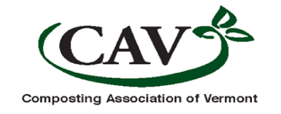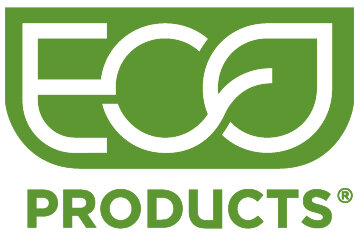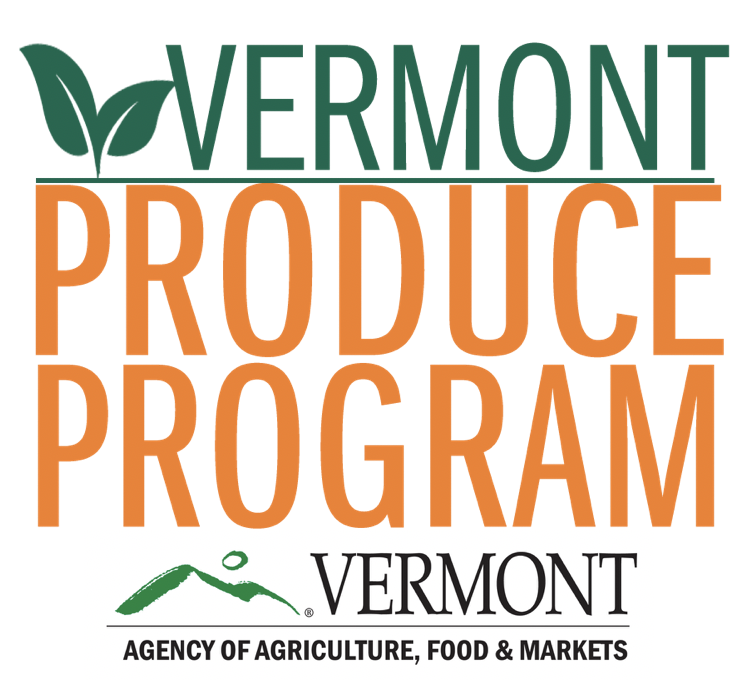Thank you for helping make VORS 2021 a success!
Monday May 3rd - Friday May 7th
The 2021 Vermont Organics Recycling Summit (VORS) included a variety of FREE virtual events (webinars, facilitated online discussion groups, and other potential activities) celebrating the value of compost and the many ways it supports the health of the environment, the people and the economy.
We were pleased to host this year's VORS in conjunction with International Compost Awareness Week (ICAW). Note: All educational events at VORS will qualify for Professional Development Hours from the US Composting Council.
For More Information Contact:
Natasha Duarte, CAV Director, at 802.373.6499 or info@compostingvermont.org
Recordings of the VORS sessions
Click on the day to jump to those sessions, or scroll down this page to find specific sessions. Slide decks and additional resources will be added soon.
Monday May 3rd
1:00-1:30 PM
Opening Remarks, Peter Walke, Commissioner, VT Department of Environmental Conservation
State of the State, Josh Kelly, Materials Management Section Chief, ANR, Solid Waste Program
1:30-2:30 PM Keynote: David Montgomery, Bringing Our Soil Back to Life
+ 3:00-4:00: Virtual Tour: Vanguard Renewables’ new Anaerobic Co-Digester at the Goodrich Family Farm (click to learn more)
Join us for a virtual tour of Vanguard Renewables’ new anaerobic co-digester in Salisbury. The facility began operating in late 2020 and recycles commercial food waste and manure from a milking herd of 900+ to create tons of environmental, social, and community benefits. Unlike grid-connected AD’s, this project represents critical technological advancements and several firsts for Vermont, including a phosphorus removal system and an end product of Renewable Natural Gas (RNG). Vanguard Renewables’ process also creates a low-carbon fertilizer and natural animal bedding for the farm, as well as no-cost energy from a combined heat-and-power generator (CHP) and local odor controls.
The virtual tour will be followed by Q&A with Billy Connelly, Vermont Organics Market Manager, and Lance Butler, Facilities Manager for the Goodrich Farm Digester.
Tuesday May 4th (click on session titles to learn more)
+ 10:00-11:30 AM: Food Scrap Composting Success: Stories From the Field
Composting systems come in all shapes and sizes. This panel represents different scales of commercial facili-ties, as well as on-farm composting. Join us to get an overview of these different types of operations, includ-ing permit size; accepted materials; recipe development and sourcing; hauler relations; customer training; marketing; and more. Through discussion you’ll learn about advantages or disadvantages to advancing to the next permit level; systems and process improvements; relationship building; as well as the challenges and opportunities that come with different scale and system choices.
- Athena Lee Bradley, Organics Consultant, Community scale composting
- Trevor Mance, Casella Waste Systems, Inc., Medium permitted facility
- Eric Paris, Tamarlane Farm, On-farm composting
- Bob Spencer, Windham Solid Waste Management District, Small permitted facility
- Kim Stacey, Chittenden Solid Waste District, Large permitted facility
+ 1:00-2:30 PM: Compostables, Disposables, and Durables – A look at food service options in Vermont, the opportunities they offer and the challenges they present
Vermont, its people and its institutions tend to take a progressive approach towards solid waste management and try to make decisions based with minimal environmental impact wherever possible. Balancing between environmental benefit, function, practicality, convenience, and cost is a challenge at best.
- Dan Goossen, CSWD Green Mountain Compost, Compostable Products in Vermont – exploring the conflict between increased use and limited acceptance statewide
- Marissa Watson, UVM Dining, Sodexo, Durable food service ware on a college campus – the good, bad and ugly of implementing the EcoWare program at UVM
- Marina McCoy, Waste Free Earth
+ 3:00-4:30: Food Scrap Diversion Strategies for Multi-Unit Complexes
Multi-unit complexes present unique challenges for implementing and sustaining food scrap diversion programs. Many have offsite managers; trash, recycling, and food scrap collection services are often communal, with little oversight; space to expand collection bins to accommodate food scrap collection is often limited; outreach may require special tools for training; many are renter-occupied with higher occupant turnover; and, like other residential areas, issues with bears, raccoons, and squirrels are a concern.
This panel will review the Vermont Rental Housing Code and compliance for implementation of Act 148 at multi-unit complexes; discuss strategies for collection containers (such as wildlife-resistant containers); working with haulers; program implementation strategies; outreach and education strategies including tools for landlords/property managers, condominium and renter associations, and tenants, such as enhanced resident engagement through community meetings and door-to-door outreach, signage, brochures, etc.; technical assistance tactics for implementation, including tips on how to apply collection charges, dealing with odor, flies, and wildlife issues, low participation, and, more.
- Russell Aminzade, Ledgewood South Condominiums
- John Fay, Windham Solid Waste Management District
- Cassandra Hemenway, Central Vermont Solid Waste Management District
- Emma Stuhl, VT ANR Solid Waste Programm
+ 3:00-4:00: Virtual Tour: Windham Solid Waste Management District's Compost Facility
Windham Solid Waste Management District's food scrap composting facility has grown to the 2nd largest in VT. The tour will show the processing of Brattleboro's residential curbside organics, as well as commercial and industrial organics co-collected with non-recyclable paper and cardboard. The facility has met its annual "small food waste composting facility" permit capacity limit of 2,000 cubic yards, and the regulatory requirements for moving to a larger permit capacity will be discussed. Marketing of "Brattlegrow" compost will be described, including manufacturing of topsoil.
The virtual tour will be followed by Q&A with District Manager, Bob Spencer.
Wednesday May 5th (click on session titles to learn more)
+ 10:00-11:30 AM: Connecting Farms to Communities to Close the Nutrient Loop
In 2019 the Farm to Plate Food Cycle Coalition started an On-Farm Composting Project. We will present the new On-Farm Composting Booklet outlining regulations around composting and laying out how communities can connect to close the nutrient loop. The booklet provides a matrix to help readers understand the regulatory thresholds aligned with compost volumes and methods of composting available. Three case studies in Vermont are highlighted to show different adaptations of closing the nutrient loop at a community scale. Speakers will cover the booklet contents and technical assistance programs available to farmers to establish composting operations. One participating farmer highlighted in our case studies will speak of their experience. We'll invite discussion and questions from participants to help inform the next phase of our work.
- Cat Buxton, Grow More, Waste Less
- Natasha Duarte, Composting Association of Vermont, Farm to Plate Food Cycle Coalition
- Jen Murphy, Willow Tree Community Compost
- Chuck Wooster, Sunrise Farm
+ 1:00-2:30 PM: Composting and Heat Recovery for the VT Phosphorus Innovation Challenge
Agrilab Technologies Inc. (AGT) is one of the teams funded through the VT Phosphorus Innovation Challenge. The larger effort seeks to reduce P loading to Lake Champlain and other VT waters through new practices. AGT is setting up a network of on-farm composting and P processing sites to stabilize and add value to P concentrates and other biomass. End products are intended to be better distributed and applied within farm operations, within watersheds and for export. Use of compost aeration and heat recovery (CAHR) units aids with efficient compost operations and drying/stabilization of finished products
- Kaitlin Hayes, Agency of Agriculture, Food & Markets
- Brian Jerose, Agrilab Technologies Inc.
+ 3:00-4:00: Improved Compost Fertility Characteristics: Thermophilic and Vermicompost Blends
Thermophilic (traditional) compost and vermicompost are two very different composting systems promoting different microbial communities. Mature thermophilic compost is generally slow to release nutrients and is inexpensive. In contrast vermicompost already has high levels of available nutrients and is about 10 times the price of thermophilic compost. The research presented is exploring potential synergistic nutrient release effects when the two compost types are mixed.
- Josef Görres, Plant & Soil Science Department, University of Vermont
- Korkmaz Bellitürk, Department of Soil Science and Plant Nutrition, Namık Kemal University (Tekirdağ/Turkey)
+ 3:00-4:00: Virtual Tour: Chittenden Solid Waste District's Organic Diversion Facility
Located within Vermont’s most densely populated area, Chittenden Solid Waste District’s Organic Diversion Facility (formerly known as Green Mountain Compost) has been ramping up to meet the changing needs of organics diversion. Come along for a virtual ride as we explore the many recent upgrades and process changes along with some of the challenges that increased organics diversion brings with it.
The virtual tour will be followed by Q&A with General Manager Dan Goossen.
Thursday May 6th (click on session titles to learn more)
+ 10:00-11:30 AM: Soil Builders: Compost-Based Best Management Practices for Erosion Prevention & Sediment Control
Building on a March 23rd CAV Soil Builders webinar with Chuck Duprey (Naturcycle) and Brian Jerose (Agrilab Technologies Inc.), we take a deeper dive into compost-based Best Management Practices (BMP) for erosion prevention and sediment control. This session will provide a brief overview of the practices, and then get deeper into application of the BMPS with an extended Q&A with an expert panel. In addition to the recording of the Soil Builders BMP module, you can also check out the Compost Standards & Specifications session from VORS 2020 and sessions M4 and A4 from VORS 2019.
- Mike Carignan, Agresource, Inc.
- Natasha Duarte, Composting Association of Vermont
- Chuck Duprey, Naturcycle
- Jack Eaton, Filtrexx Northeast Systems
- Heather Voisin, VTrans
+ 1:00-2:30 PM: Organics Diversion Options in Chittenden County
CSWD’s Rhonda Mace will start this panel off with an overview of the food scrap management landscape in Chittenden County. She'll touch on the myriad options for how Chittenden County residents and businesses can comply with the food scrap diversion requirements of VT’s Universal Recycling Law (Act 148), including: food recovery/waste prevention, onsite management (garbage disposals, grinders, dehydrators, backyard and community-scale composting and digesting), feeding animals, drop-off options, curbside pickup, and - importantly - where those organics may end up depending on the option chosen.
Rhonda will point attendees to where they can find more information about each option and will give an overview of current licensed food scrap haulers in Chittenden County. Michele Morris will round out the session by moderating a Q&A session for which all Chittenden County food scrap haulers and facility operators will be invited to attend to answer questions from attendees.
- Rhonda Mace, Chittenden Solid Waste District
- Michele Morris, Chittenden Solid Waste District
+ 3:00-4:00: Zoning: The Compost Entrepreneurs Challenge
The US Composting Council (USCC) is releasing a Model Zoning Template this year which is designed for adoption by cities, counties and towns to implement in their zoning codes. Compost manufacturers looking to open facilities or expand are often stymied by lack of zoning and this Model Template was formed from a study of the zoning codes that are out in the policy-sphere as best zoning practices for small, large, and on-farm sites, as well as consolidation (collection) sites for community composting.
- Linda Norris-Waldt, US Composting Council
- Marcus Zbinden, Carver County Environmental Services (MN)
+ 3:00-4:00: Virtual Tour: Rich Earth Institute: Urine Fertilizer in Research & Practice
The Rich Earth Institute engages in research, education and technological innovation to advance the use of human waste as a resource. Rich Earth operates the nation’s first community scale urine recycling program, reclaiming the nutrients from our bodies as a sustainable fertilizer for local farms, reducing downstream nutrient pollution, and conserving clean potable water. This program serves as a platform for controlled agricultural field trials with urine fertilizer, as well as both lab and social research. In this virtual tour, learn about how their community-scale program operates and the future of urine nutrient reclamation in the Southern Vermont region and beyond!
The virtual tour will be followed by Q&A with Arthur Davis, Director of Community Programs.
Friday May 7th (click on session titles to learn more)
+ 10:00-11:30 AM: Engaging a New Generation of Organics Managers
Join us to learn how a new generation of organics managers are evolving with the Universal Recycling Law through a myriad of projects and experiences. In this panel we’ll hear about solutions and opportunities in this growing industry ranging from pre-school experience-learning to post-college service.
This panel of presenters include teachers, middle school students and ECO AmeriCorps members. Topics include planting for pollinators and healthy soils, food waste reduction and perceptions around composting, as well as how young professionals are engaging in this effort through ECO AmeriCorps positions with Solid Waste Management Entities in Vermont.
- Lexi Chambers, ECO AmeriCorps, Lamoille Regional Solid Waste Management District
- Colin Clarcq, ECO AmeriCorps, Addison County Solid Waste Management District
- Amanda Clement, ECO AmeriCorps, Central Vermont Solid Waste Management District
- Miranda Dalton & 3 middle school students, Virtual Learning Academy for Champlain Valley School District
- Julia Parker-Dickerson, Smilie Memorial School
- Elly Ventura (moderator), Lamoille Regional Solid Waste Management District
+ 1:00-2:30 PM: Haulers' Roundtable
The Haulers’ Roundtable provides a place for organics haulers to get together to trade notes on topics including (but not limited to) equipment or customer relations, and ways to address issues such as contamination. Three organics haulers will share their stories, followed by lots of time for discussion and Q&A. While focused on hauler issues, all are welcome to attend this session!
- Zach Cavacas, Music Mountain Compost
- Sid Hammer, Vermont Compost Company
- Hen Joyner, Northwest Solid Waste District
+ 3:00-4:00: Virtual Tour: Black Dirt Farm
Black Dirt Farm is a diversified family farm in Vermont's Northeast Kingdom. They collect food scraps from a wide variety of businesses and institutions in their community/ region, and use that material as a component of the compost forage it produces for its 1,000 bird flock of laying hens. What isn't consumed by the birds is then used to make compost and worm castings. The farm also grows a small number of crops. Their farm is firmly based in regenerative agricultural practices and the creation of sustainable food systems. Black Dirt Farm is committed to a community-scale, systems-based approach to organics management. Tom has played a wide variety of roles in the agricultural and composting sectors for 25 years.
The vitural tour will be followed by Q&A with Tom Gilbert.
Special thanks to:
Thanks to our Sponsors!!
Learn what the Produce Safety Rule means for your business.












